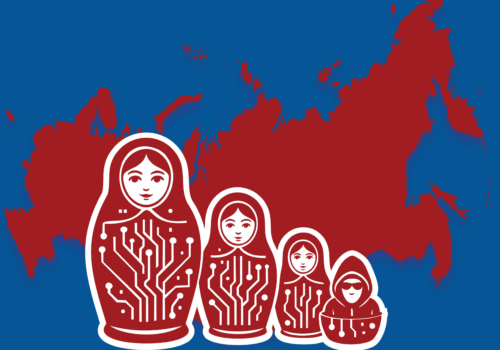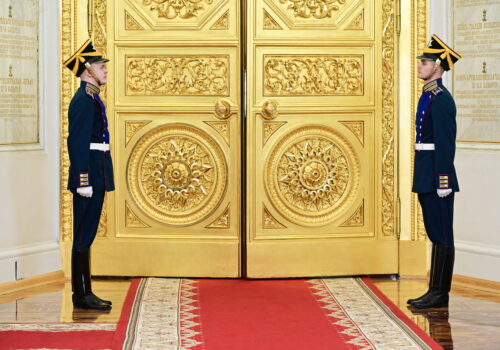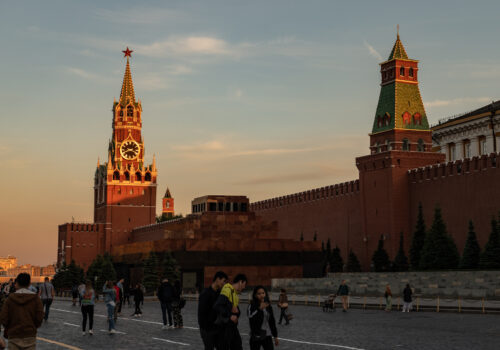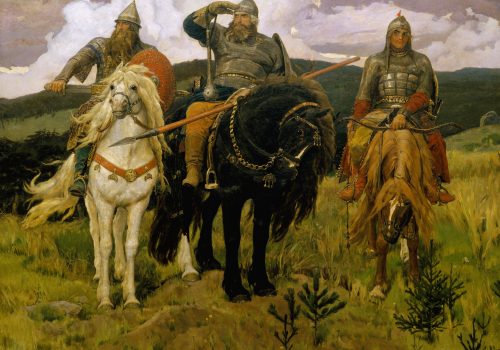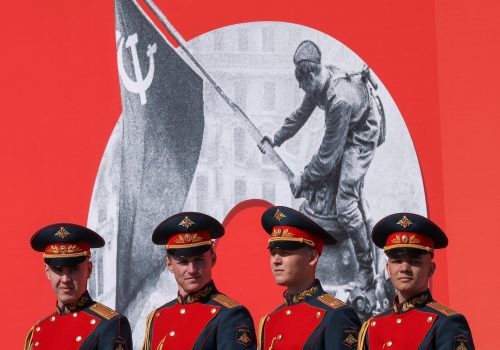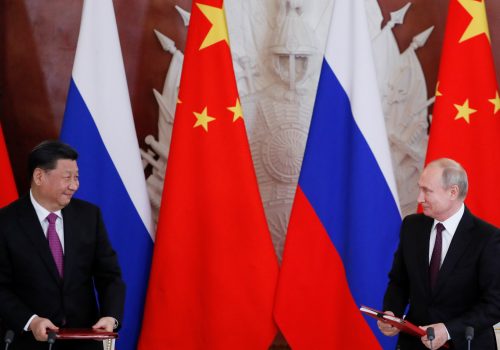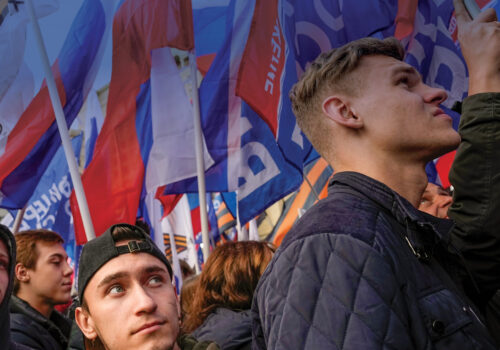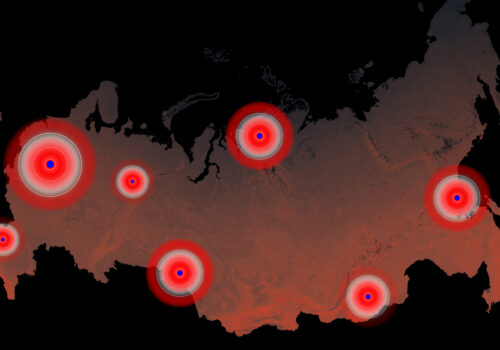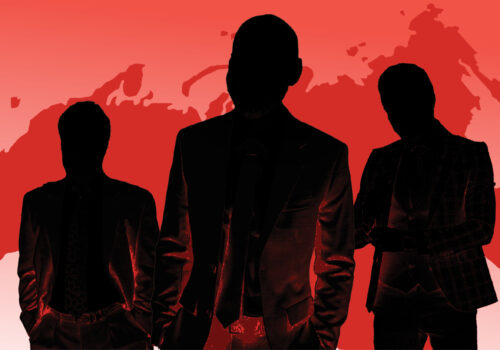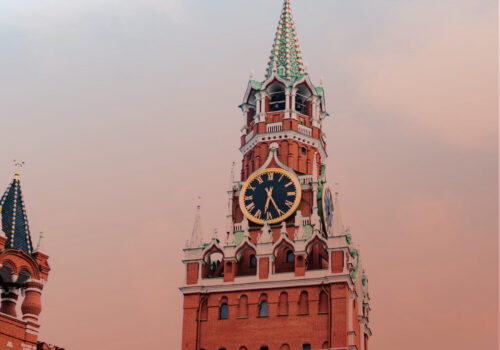
Russia’s war of aggression in Ukraine has dominated international attention since its full-scale invasion two years ago and at points since it illegally seized Crimea in 2014. But there is only partial understanding that Vladimir Putin’s revisionist foreign policy poses the greatest short-term challenge to the international order today—and to critical US interests in Europe and beyond. While its economy is unevenly developed, Russia has the world’s largest nuclear stockpile, is a serial aggressor, and its policy is in the hands of an increasingly repressive authoritarian regime.
Russia’s war on Ukraine has reverberated around the world, changing the lives of tens of millions of people in Europe, affecting policies and politics across the transatlantic community, and echoing in China, India, and across the Global South. Kremlin aggression threatens to unsettle security, prosperity, and peace all around the world through its outright rejection of international norms. A better understanding of Russia is crucial to mitigating these risks to the global order.
Policymakers and the public need a new paradigm for understanding Russia. To more effectively address the Russian challenge, we need to reshape the way we think about and understand Russia.
The Atlantic Council’s Eurasia Center’s pathbreaking new series, Russia Tomorrow, aims to accomplish that very task. Through a series of succinct, accessible policy papers, Russia Tomorrow’s expert authors address potential scenarios for Russia’s future, Putin’s web of confidants, the effects of Western sanctions, and much more. Led by Eurasia Center Senior Director John Herbst and nonresident senior fellow Brian Whitmore, Russia Tomorrow delivers insights and policy recommendations from leading experts to enhance our understanding of Russia.
Join the Eurasia Center in reevaluating the conceptions and realities of Russia today so we can better understand and contend with the Russia of tomorrow. For the latest updates on Russia Tomorrow, follow us on Twitter at @ACEurasia, subscribe to our flagship newsletter, and listen to the Power Vertical podcast.
Featured content
Featured report
Featured events
Featured coverage

The Eurasia Center’s mission is to promote policies that strengthen stability, democratic values, and prosperity in Eurasia, from Eastern Europe in the West to the Caucasus, Russia, and Central Asia in the East.









